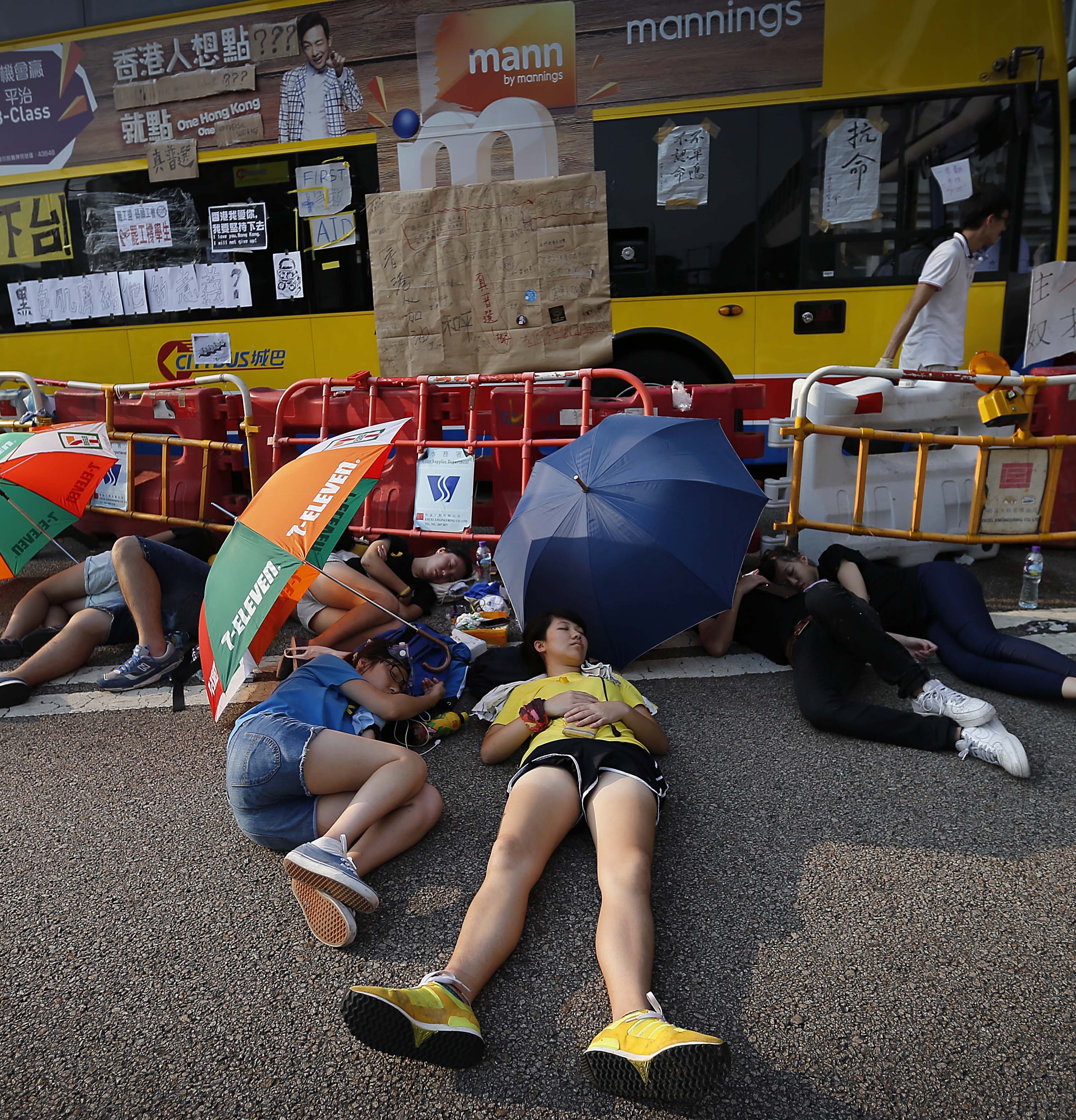
Occupy Central: Protestors set deadline, Beijing refuses to budge
Pro-democracy protesters in Hong Kong set a Wednesday deadline for a response from the government to meet their demands for reforms after spending another night blocking streets in an unprecedented show of civil disobedience. A brief statement from the Occupy Central civil disobedience movement said it had set an Oct. 1 deadline for the city’s unpopular chief executive, Leung Chun-ying, to meet their demands for genuine democracy and for him to step down as Hong Kong’s leader. The group said on Twitter it would “announce new civil disobedience plans same day,” without elaborating. Leung said China’s communist leaders in Beijing would not back down from an August decision to restrict voting reforms for the first direct elections to pick his successor in 2017.
The central government will not rescind its decision.
Leung Chun-ying, Hong Kong’s chief executive
Many younger Hong Kong residents raised in an era of plenty and with no experience of past political turmoil in mainland China have higher expectations. Under an agreement set in 1984, before most of them were born, Beijing promised to allow Hong Kong residents civil liberties — unseen in the rest of China — after it took control of the city in 1997. The protesters are dismayed by China’s decision last month that candidates in the city’s first election for its top leader must be hand-picked by a committee of mostly pro-Beijing tycoons. That move is viewed by many residents as reneging on promises to allow greater democracy in the semi-autonomous territory of 7.1 million, since Beijing had promised that the chief executive would eventually be chosen through “universal suffrage.”

Asia-Pacific occupy central